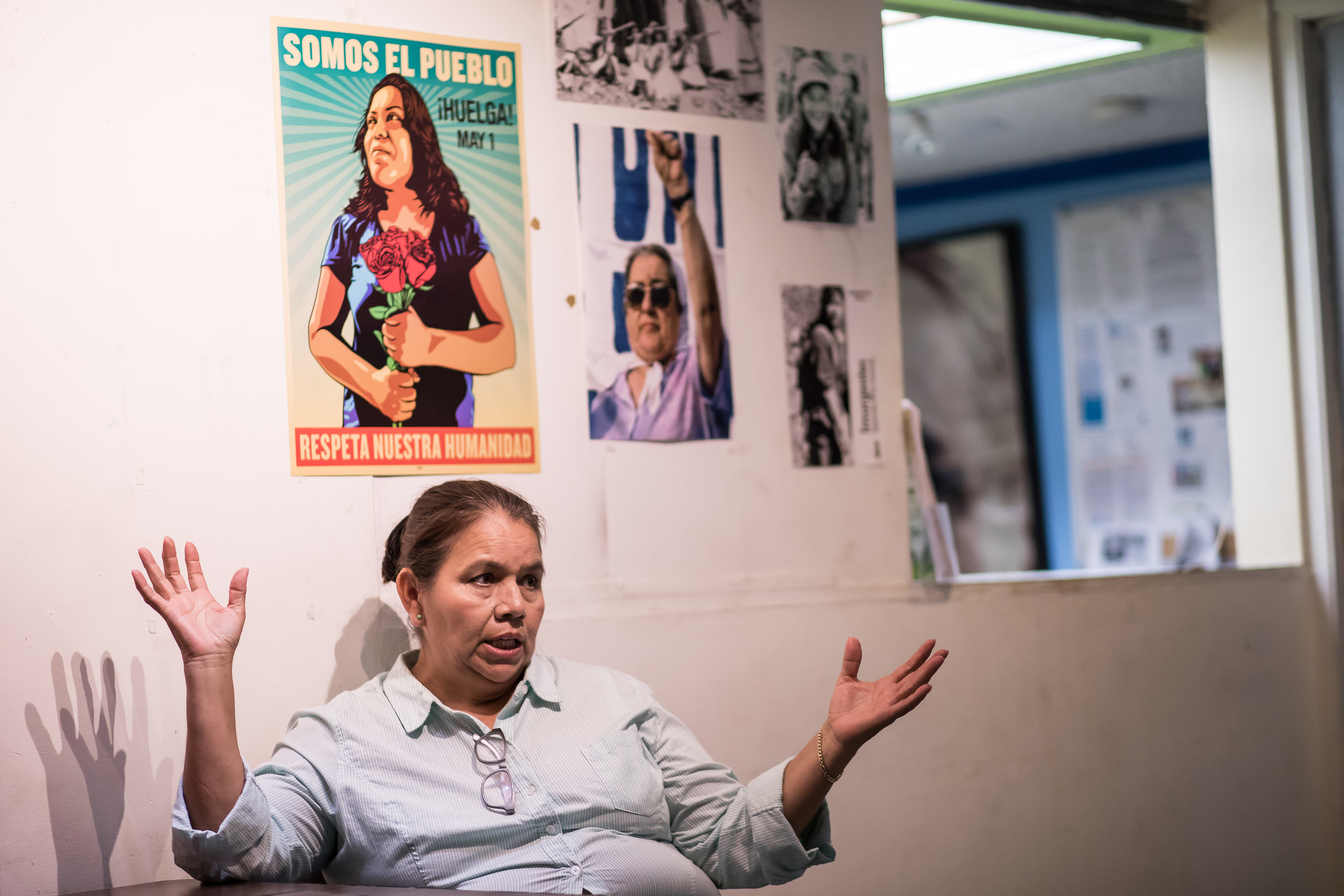On the board of Clínica Romero for the past five years, Adaly is a community leader, organizer, educator and promotora. She works at Accion Westlake, a grassroots effort by and for residents in the Westlake District of Los Angeles, home to many immigrants from Mexico and Central America. She has worked extensively with KYCC in Prevention Education, Community Economic Development and Environmental Services.
Where is your hometown?
Puerto Barrios, Guatemala. In Guatemala, I didn’t have freedom. I had a different kind of involvement—I was in the Guatemala National Choir and I played for a volleyball league, as well. I sang traditional Christmas carols. I couldn’t do what I do here—if I did, I wouldn’t be telling this story. I came to the U.S. in 1989 and I came here to Westlake in Los Angeles. From 1989 until now, I’ve lived only in two different places in this neighborhood.
Do you live or work in Koreatown?
I planted some trees in 2003 with KYCC’s Environmental Services. This was even before Accion Westlake had a facility! Now Accion Westlake holds art workshops and meetings on cleanups, financial education and tenants rights. We met with KYCC at parks or in people’s homes and the group planted on Westlake Avenue and Bonnie Brae Street. I was also involved with the inauguration of Parc Morazon on 8th and Valencia. I started attending school meetings and
I started attending school meetings and trainings with Central City Neighborhood Partners, which was educating promotoras on healthy habits. We met on Union Avenue, and at Miguel Contreras, Roybal, Gratts and Belmont. I also started working with a group of mothers to build Manos Unidas, where I learned leadership skills and how to build a committee. I’m also part of Tax Time Savings and Lending Circles at KYCC. I use the tax credits for education. I have four kids and I used that money to buy my kids books during high school and college. The Lending Circles helped pay my credit card debt for bills, food, everything…We are living day-to-day.
Twenty-two years ago, I lived with a U.S. citizen. One night, the Census came. My friend said if she put me down, she would lose her citizenship. But then I got curious and looked into it. I realized it wasn’t true. It sparked my curiosity to understand the political agenda—how it could benefit me and how I could use it to my advantage.
What are your thoughts on Koreatown?
I work to keep the community in better condition. It’s hard. Right now, I’m focused on educating. Because if we do a cleanup, the next day it’s like nothing happened. Setting the example is better than 1000 words. For the past three months I have been walking the streets in the morning and I see people with their dogs outside. I ask them if they use bags to pick up after their dogs, and I tell them to do it not because it’s the law, but because as a human being, it’s what they should do. One lady told me it was good for the grass.
We can have trees and good streets, but what happens if we don’t make changes in the people? They are low-income and what happens if there is gentrification? If they don’t have money, they don’t have rights. Now I am focused on tenants rights and requesting more apartments.
I prefer going around my area to clean because Macarthur Park looks like a homeless park. I talked to many city reps and I was told they were going to make Macarthur Park look like Echo Park. But they just put some plants here and there. Pala de pale el loco — it’s like lipstick on a pig.
Where is your favorite place in Koreatown?
There’s a market on Western called H Mart. There’s a bakery on top. I like the prices. I order the gimbap because my daughter loves it. We call them rollitos—that’s what we get. I buy the vegetables, but the rollitos are for the kids.
